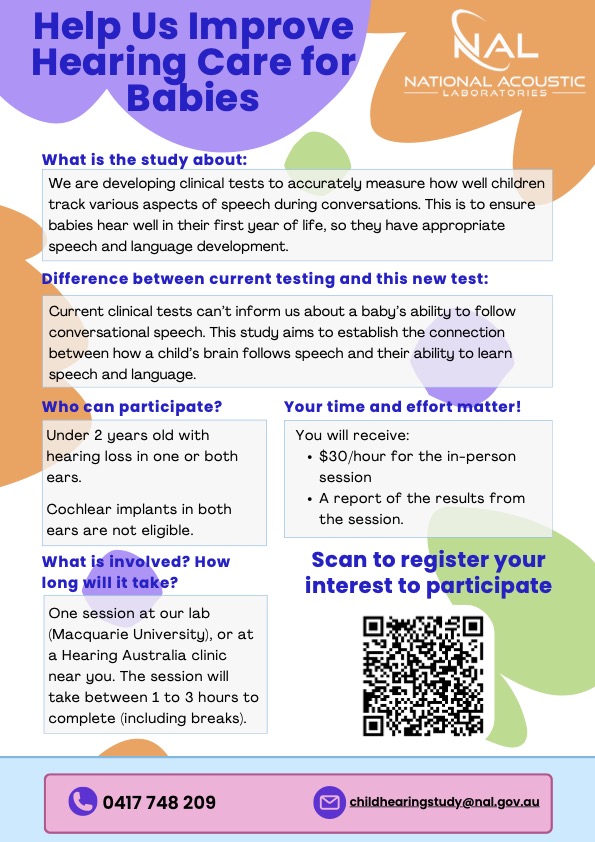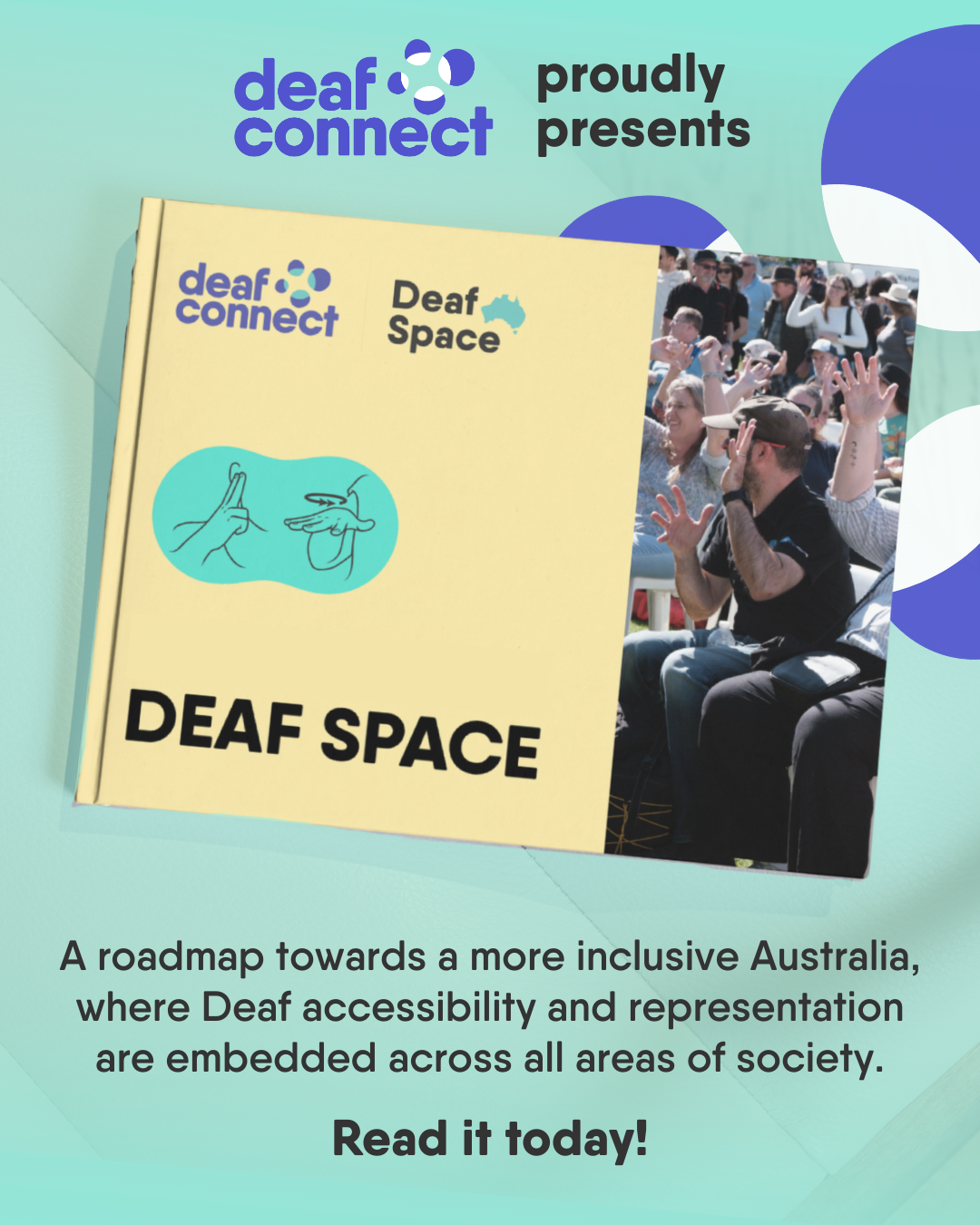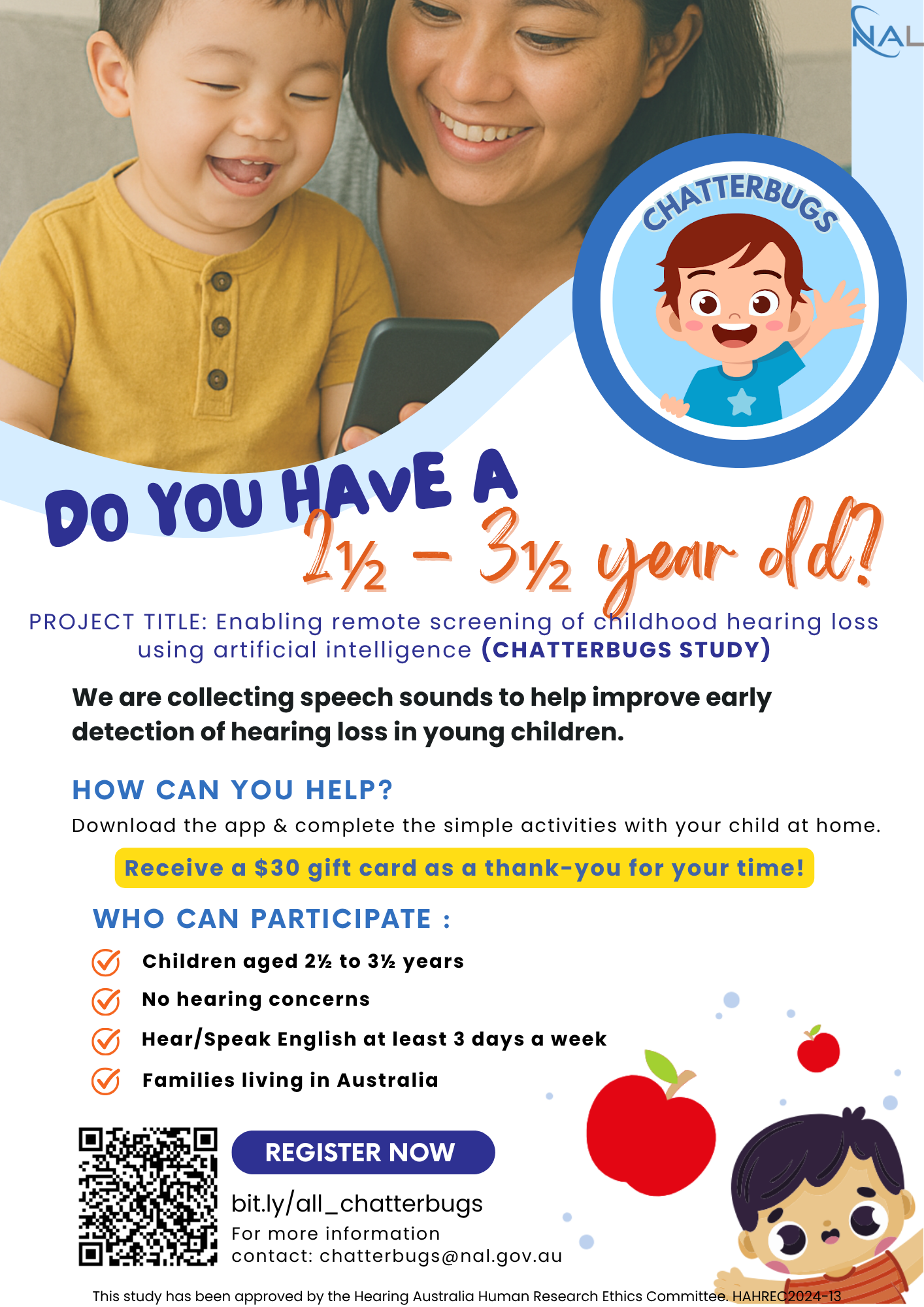Paediatric Hearing Study at National Acoustics Laboratories (NAL)
What is the study about?

Our goal is to ensure babies hear well in their first year to support age-appropriate speech and language development. We are developing clinical tests to measure how accurately children track speech during conversations including voice. Unlike current available
tests, this will indicate a baby’s ability to follow conversational speech, and could establish a link between brain activity to speech and language learning.
By participating in this study, it will not only inform you about your baby’s hearing and communication development, but it will advance clinical tests to help babies with hearing loss in the future.
Who can participate?
We’re inviting children under 2 years old with hearing loss in one or both ears, children with cochlear implants in both ears are not eligible.
What’s involved? How long will it take?
One visit at our lab (Macquarie University) or at a Hearing Australia clinic near you, where we’ll record your baby’s brain responses to speech and measure their communication development. This safe, non-invasive process is similar to newborn hearing screening.
This session is scheduled around your baby’s nap time as it is best they are sleeping during testing and typically takes between 1-3 hours to complete.
What would you receive for your participation?
A report will be provided that indicates whether your child’s language and communication is developing as expected for their age. This report will also indicate how the hearing aids are helping your child hear speech better than without hearing aids. We are also able to discuss these results with your Hearing Australia audiologist with your consent.
Your time and effort matter: We’ll reimburse you $30/hour for the visit.
If you’d like to be part of this exciting research or have any questions, simply email childhearingstudy@nal.gov.au, or call us on 0417 748 209, or you can register your interest by clicking this link.
More information:
- Participate in research | ADK





